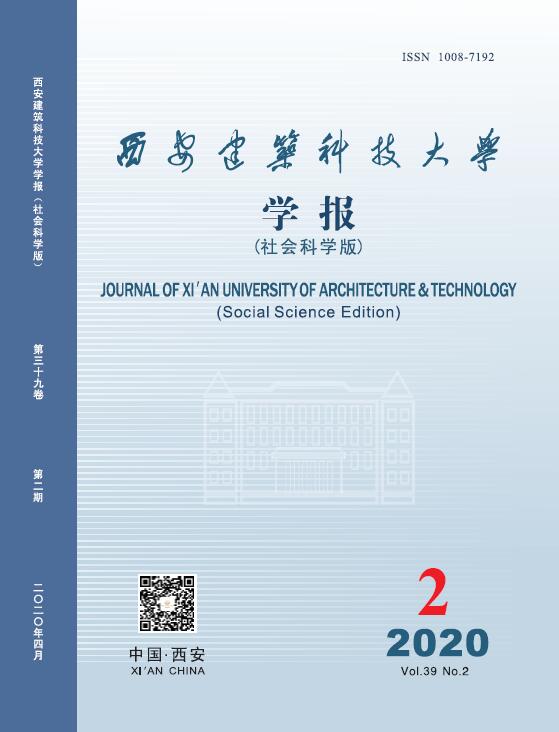作者简介:李玉璞(1995-),女,陕西理工大学文学院硕士研究生,研究方向为中西文学比较; 金 晶(1980-), 女,陕西理工大学文学院讲师,博士,硕士生导师,研究方向为中西文学比较。E-mail: liyupu812@qq.com
(School of Literature, Shaanxi University of Technology, Hanzhong 723000, China)
DOI: 10.15986/j.1008-7192.2020.02.011
备注
作者简介:李玉璞(1995-),女,陕西理工大学文学院硕士研究生,研究方向为中西文学比较; 金 晶(1980-), 女,陕西理工大学文学院讲师,博士,硕士生导师,研究方向为中西文学比较。E-mail: liyupu812@qq.com
石黑一雄的《浮世画家》涉及杉村明别墅、毛利别墅、酒馆等多个建筑空间,这些空间承载着主人公小野的身份转换、职业追求和人生选择,作者描述了这些空间在战时和战后的变化,也完成了对日本这个战时帝国形象从建构到解构的过程。挖掘文中小野的身份地位与生活环境的变化及其职业路径与空间转移背后的隐喻意义,探讨战争给人造成的精神困境,能够帮助我们更加深刻地理解作品主旨意蕴和作家的创作立场。
Ishiguro's novel An Artist of the Floating World involves a number of architectural spaces such as Sugimura Villa, Maori Villa, and Tavern. These spaces carry the identity conversion, the career pursuit and the life choice of the protagonist Ono. The author describes the changes of these spaces in wartime and post-war era, which shows the process of the wartime imperial image of Japan from construction to deconstruction. The paper thinks it essential to excavate the change of Ono's status and living environment in the text, interpret the metaphorical meaning behind her career path and the space shifting, and explore the spiritual dilemma caused by war, for it would be helpful for us to understand more deeply the meaning of the novel and the writer's creative position,
引言
《浮世画家》出版于1986年,是石黑一雄的第二部长篇小说,与第一部作品《远山淡影》一样,作者将小说的故事背景设置在他的故乡日本。小说以第一人称的口吻,记叙了主人公小野增二从1948年10月到1950年6月期间的四篇日记,讲述了一位退休的画家对二战前后关于工作、生活、家人、信仰等的回忆,主要探讨了日本的普通民众在战争期间的责任问题。其中涉及大量富有隐喻意义的建筑空间,包括杉村明别墅、竹田大师的公司、毛利先生的别墅、松田的别墅、左右宫酒馆、川上夫人酒馆等,这些空间承载着小野的身份转换、职业追求、心情沉淀和人生选择。小说通过小野的回忆,将这些空间在战时和战后的状况做了对比,不仅再现了日本普通民众在战时和战后的情绪变化,也完成了对日本帝国形象的建构和解构。以往学者对《浮世画家》中的建筑意象、空间类型也有过关注,主要将空间意象与主人公的心理情感、身份认同相联系,从空间与人物的归属感和焦虑意识来论述主人公人生的悲剧性。本文在前辈学者论述的基础之上,将《浮世画家》中的空间变迁与帝国批判结合起来,论述空间折射出来的个人的人生命运及其背后的帝国意识的建构与崩塌,由此探讨作品更深层次的思想意蕴。
1 建构:象征“帝国英雄”的建筑空间
建筑空间拥有物质和精神的双重功能,很大程度上也能彰显人在某一时期的思想倾向、社会关系和价值选择。《浮世画家》描绘小野的住所空间、工作空间和娱乐空间,分别展现了他的身份地位、职业追求和社会关系。从小说对这些空间的描写和人物在空间下的活动,可以看出在日本战败前,小野在人生之路上不断攀升,他居住的房屋、不断变更的工作环境以及谈笑风生的酒馆都在塑造小野这个“帝国英雄”的形象。
1.1 住所空间:宣扬身份住所空间很多时候是主人身份地位的表征,文章一开篇就对杉村明别墅的地理环境进行了一番细致的描写,环境清幽的小山里赫然立着一幢装修精美的别墅,它拥有雪松大门、枝繁叶茂的庭院、琉璃瓦的屋顶、精致的雕梁画栋,在周围房子的衬托下显得“鹤立鸡群”。“空间虽然表现为客观的,看来是中性的、非政治的,但就其本质来说,空间是政治性的空间,特别是城市空间强烈的表现出政治经济的痕迹,富丽堂皇的别墅和低矮破旧的贫民窟所形成的的鲜明对比无声的彰显了阶级的对立。”[1]这样一座阔气精致又格调高雅的别墅就是小野的住所,它的前主人杉村明曾是城里最德高望重的人,而小野获得这所别墅的方式也在暗示他当时拥有极高的身份地位。杉村明别墅的转让不以金钱多寡为考量,而是一场信誉拍卖,杉村家族对四位买主的背景和信誉展开了细致的调查,最终同意把房子卖给小野。杉村家族甚至在卖出去很久之后还时不时盘问小野是否对房屋进行了改造,甚至直接进入家里关切屋子,他们的调查行为引起了小野夫人的不满。对于这一切,小野也有些不满,但他在住进房屋之后还是乐意接受。小野对这所房屋的喜爱溢于言表,“它外表壮观、盛气凌人,里面确实精心挑选的色彩柔和的天然木料,我们住在里面之后才发现,这座房子特别有助于放松心情,安享宁静。”[2]5小野找到了一个合理的理由欣然入住新屋,而更大的原因在于这所豪宅完全能够彰显他当时尊贵的身份地位。“博物馆理事会的富豪、摩天大厦的建造者和豪华私邸的主人,建筑对于这些最为自负的个人施加着恒久不变的魅力,引诱他们不顾一切的利用建筑来炫耀自己”[3]285对小野来说,豪宅是权力和荣誉的象征。小野住进杉村明别墅大约是1933年,那时正是二战最激烈之际,也是为日本军国主义摇旗呐喊的小野声望最高之时,入住这所豪宅对小野来说是“锦上添花”,也是建构“帝国英雄”形象的重要支撑,这所豪宅成为了小野宣扬个人身份的利器。
1.2 工作空间:展现野心小野增二作为画家的职业追求和空间转移是同步的,他的职业路径跟随着他的选择一步步攀升。小野画家生涯的起步在竹田大师的工作室,这个工作室位于一家饭店的楼上,狭小而拥挤“屋子从这头到那头都是窗户,本应该使我们有充足的光线作画,可是不知怎的,照进来的一道道阳光总是太刺眼,屋里看上去像一个船舱一样”[2]80,加之竹田大师工作室主要画的是以量取胜的商业画,工作邀约不断,小野等人经常通宵达旦创作,整日精疲力竭。小野对这种工作环境和工作模式非常不满意,他认为这些不在意细节和风格只追求速度和数量的商业画会对他的天赋造成无法弥补的伤害,所以他很快就离开了竹田大师工作室,拜在毛利先生门下做学生。小野带着雄心壮志做出了第二次的职业选择,进入了毛利先生的别墅。那里住着一群艺术家,他们会为了一幅新作争论好几天,也会在夜晚歌舞升平、寻欢作乐。毛利先生属于当时流行的“浮世绘画派”,画作充斥着消遣娱乐的风格,这与小野的职业追求是相背的。于是小野做出了第三次职业选择,在松田先生的鼓舞下,小野开始创作带有政治色彩的画作,此时的职业选择和理想倾向才与小野的雄心壮志相符合。松田与小野的对话还出现了极为激进的言论:“我们应该打造一个像英国和法国那样强大而富有的帝国。我们必须利用我们的力量向外扩张。时机已到,日本应该在世界列强中占领它应得的位置。”[2]218此时,日本人的野心表露无遗。小野作为一位画家,或许没有实际地参与战争,但他却用艺术的方式为战争鼓吹号角。他不再是唯唯诺诺的学生,而是成为别人德高望重的老师,在鼓吹军国主义的道路上越走越远,甚至成为了国务院的艺术委员。战争帮小野实现了他的雄心壮志,完成了身份转换,也满足了他的虚荣心。那时的小野为帝国主义、军国主义摇旗呐喊,浓缩着许多日本普通民众的身影。艺术家或者普通人在职业追求和人生价值的选择上受到帝国主义的蒙骗,争着为战争做贡献,他们被奉为“帝国英雄”,也借由战争在自己的人生路上攀上高峰。
1.3 娱乐空间:巩固权力被小野描述为“逍遥地”的酒馆就是艺术家小野的娱乐空间,最为典型的就是左右宫酒馆。小野在左右宫酒馆的改造上起到了举足轻重的作用,当时正值小野事业的高峰期,而小野提出酒馆改造后的主题为“颂扬当今日本正在涌现的爱国精神”[2]77,并且还打算将酒馆作为画家和艺术家的聚集地,只接收与这种精神相符合的客人。亨利·列斐伏尔认为“空间和空间的政治组织表现了各种社会关系,同时也会反过来作用于这些社会关系”[4]27。人物的身份和社会关系赋予空间以阶级性,同时使空间具有排他性,以促进利己的社会关系交往。酒馆开张之后灯火通明,装修风格显现出强烈的军国主义色彩,老板还给作为功臣的小野一张专属的桌子。左右宫就成了小野和他的学生聚会的地方,他们谈论的也多是“爱国精神”,这个酒馆里的人都以自己是“帝国精英”而引以为傲。小野的学生还以左右宫为背景做出一副凸显爱国主义精神的画作,他们在这片逍遥地以膨胀的“爱国热情”鼓吹战争,鼓吹侵略。小野很反感曾经的老师毛利先生对学生的控制,可是后来他做老师的时候,却做得比毛利先生更甚,小野在左右宫时期的学生黑田因违背了军国主义的理想,被小野参告关进监狱受尽折磨。福柯指出:“一个建筑物应该能改造人:对居住者发生作用,有助于控制他们的行为,便于对他们恰当地发挥权力的影响,有助于了解他们,改变他们。”[5]195空间也是权力场,每个人被安排在特定的等级中,长期被操纵和监视着。曾经,毛利先生的别墅是个权力场,现在的左右宫酒馆依然如此。当时身居高位的小野一手将普通的“山形酒馆”改造成军国主义聚集地“左右宫酒馆”,利用自己的权力占有空间、宣扬战争,他把左右宫变成权力的符号,又在每次的聚会活动中将这种权力加固。
2 解构:物是人非的落寞与帝国的衰败
战败后的日本,像被一盆冰水泼过的炎热大地,遍布着消沉又不甘心的灵魂。那些为军国主义呐喊的民众,一时间无法接受被快速冷却的落寞,心中还残存着重回帝国的火苗,陷入自我欺骗的怪圈,还以为自己一直坚守着正义。很长一段时间里,小野为了小女儿仙子的婚事心焦不已,此时大女儿节子却暗示到,仙子被退婚的根源在于父亲曾经在战争期间所犯的错误,因此她建议父亲在相亲对象展开调查前必须做好“预防措施”。小野开始对过去进行反思,但在这个反思的过程中,他依然坚信自己曾经做的都是正确的事。那些曾经代表小野高贵身份地位的住所空间、工作空间和娱乐空间一个个破败,小野怀念的繁华时光一去不复返,他所渴望建立的“帝国”也随着空间的破败逐渐倒塌。
到处都留下了战争的痕迹,杉村明别墅多有几处破损,“我未能阻挡的蛛网和霉斑,以及天花板上大大的裂缝,只用防水帆布盖着,遮挡天空。有时,天刚亮,我拉开纱门,发现一道道绚丽的阳光透过防水帆布照射下来,映出悬在空气中的尘雾,就好像天花板是刚刚塌下来的一般”[2]7。虽尽力修缮,但已然回不去曾经,可是小野还在像守护自己的尊严一样地守护这座豪宅。战后的小野饱尝物是人非的落寞,战争不仅仅使小野失去了名誉和身份地位,更重要的是,它夺走了小野的妻子和儿子,小野的儿子健二在侵华战争中死于战场,这件事给了小野很大的打击,他的内心也一直在回避这件事。小野的大女儿节子早已出嫁,小女儿仙子与大郎成亲之后,住进了富有“现代”色彩的公寓,虽然在小野看来它狭小又不隔音,但仙子特别开心,反而对从小长大的别墅没有依恋感。家园空间是人的心灵的栖息地,应该给人以安全感和归属感,而这所曾经象征尊贵身份的豪宅已经空空荡荡,小野借战争之便获得了豪华的住所,最终也因为战争失去了温馨的家园。
小野曾经工作过的毛利别墅早已破旧不堪,“昆虫和蛾子大量地侵入,密密麻麻地沾在木头家具上,钻进每一道缝隙,你忍不住担心它们会使别墅彻底倒塌。”[2]170曾经的逍遥地已经彻底消亡,“左右宫仍然存在,但窗户都被炸飞了,房顶也塌了一半”[2]27。小野穿过那些破损的房屋时,还寄希望于酒馆能恢复生机。后来有一天早晨小野再过来,发现推土机已经把它们统统夷为平地。这个曾经象征“帝国英雄”的建筑空间在战后被标签为“罪恶之地”,与日本的帝国构想一起轰然倒塌。战败后,小野也停止了作画,他的心情与这些破败的建筑空间一样陷入了低迷,曾经的小野有多么受追捧,现在的他就有多落寞。最典型的一件事就是战时绅太郎以自己的老师是小野增二为荣,还去家里拜托小野帮他表弟写一封求职推荐信,最后成功帮表弟谋得一个不错的工作。战败后,小野等人被打上“叛国”的记号,受尽冷落,绅太郎为了谋得东町中学的教职工作再次上门,这次却是拜托小野写一封证明自己与老师的政治倾向无关的信。小野看不起绅太郎之流,可这件事也说明了小野战后的处境,曾经声名大噪的艺术家变得无人问津,受尽嘲讽、冷落和挖苦,被定为国家的罪人。节子也看出来父亲最近情绪低迷,整日无所事事,心情烦闷,只是小野自己不承认,他在很长一段时间里不能接受战败的结果,更加不承认自己曾经做过错事。“石黑一雄的小说采用这种叙事技巧,他通常会写一些错误的或者误导性的记忆,然后指出人们是如何为了自己的利益而转移情绪和改变过去的。”[6]165如小野闪烁其辞地推脱责任,而产生了许多不可靠的叙事,为自己曾经的行为辩护,产生了无所适从的身份焦虑。
明治维新之后,日本迅速从一个封建小国成长为亚洲强国,并在20世纪初期追随德国法西斯不断向外扩张,侵略朝鲜、中国等邻国,渴望早日一统亚洲、独霸东方,实现自己的帝国梦。在二战前期,日本鼓吹军国主义和蒙上自私面纱的民族主义,如《浮世画家》中小野增二一般的民众只尝到了战争的甜头,还宣扬要为战争多做贡献,1934-1935年,日本军事开支占国家预算的43.7%[7]38国内民众在军国主义的号召下热情高涨,他们省吃俭用,为战争提供充足的后备力量。当美军向日本广岛、长崎等多个城市进行轰炸时,日本民众也终于尝到战争的苦果,许多城市被夷为平地,无数家园被毁,日本国土满目疮痍。过分狂野的“日本帝国”发起的侵略战争,不仅给亚洲地区带来了巨大的灾难,还给自己本土招来祸端,最终以战败收场。日本战后“全民性反思的缺位和天皇制的保留以及旧官僚体制的复活”[8],使得日本民众对战争责任问题没有正确的反思,许多人甚至选择性记忆,将自己定义为受害方,如小野面对别人的指责一般。“自欺、抗拒、自我压抑、谨慎隐瞒,都是日本大众应对沉重的战争记忆时可能采取的方式。”[9]战后的小野情绪低迷,总是用自欺、隐瞒的方式回避自己的过错,如节子指出仙子的前男友三宅就是因为小野在战争中的行为而退婚,可小野却误以为退婚原因是三宅家高攀不上仙子这样的名门大户,这种想法未免显得过于高傲,小野也丝毫不从自身角度反省。“战争时期盛行的国家主义等价值观念轰然崩塌,日本人在物质和精神两方面都陷入了‘虚脱状态'。”[10]旧的价值体系倒塌,新的价值体系还未建立,民众处于无所适从的尴尬状态之中。
3 批判:帝国情怀与人性失德
《浮世画家》与石黑一雄的另一部小说《长日留痕》一样,人物内心充满着怀旧情绪,并将这种情绪寄托在空间上。“建筑确实可以在个体层次或宽泛的社会层次上引起情感反应。它折射了我们的虚荣和愿望、我们的软弱和雄心、以及我们的情结。”[3]284建筑空间总是带有丰富的意义,它承载的荣耀与辉煌让人恋恋不舍,小野总是沉浸其中。小野渴望重建昔日辉煌,还对帝国主义抱有希望,而随着建筑物的破败,人物内心的心理建设也逐渐倒塌。反而日本年轻一代的人率先进入反思模式,认为战争中被日本法西斯煽动的、鼓吹战争与军国主义的人是丧失人性的人,战后应该回归人性,回归正常人的生活,去面对的是最现实的温饱问题和经济问题。所以,战后日本人以温和的态度接纳美国人,《浮世画家》中小野的外孙对“独行侠”“大力水手”等美国英雄形象的崇拜正说明了这一点。
与石黑一雄其他的小说一样,《浮世画家》的结局带有乐观色彩,给人继续生活下去的勇气,也给悲观的人以乐观的力量。“人生短暂,若一步走错则可能全盘皆输:这一认识是令人辛酸的。然而,那些犯下的错误可以让后代有所收获,这一点至少能让人从中感到安慰。这是那样一种辛酸,那样一种情感,受挫折依然寻找理由让自己感受某种乐观因素,这是我的小说一贯的基调。”[11]文中小野为了仙子的婚事,在相亲现场终于承认了自己所犯的过错。真正使得小野道歉的原因是他人性的回归,在战争中为帝国主义和法西斯洒热血的小野是丧失人性的,这不道德的事业夺走了他的妻儿和学生,不仅使他成为一位“暴君”,还剥夺了他作为一个合格的丈夫、父亲、老师和画家的身份。战败后,在相当长的一段时间内,小野还是无法适应这些失去,他情绪低落、逃避责任、自我麻痹、放弃绘画,在为小女儿仙子的婚事奔走的过程中逐渐认识了自己的错误,并最终公开认错,是父亲的责任唤起了他的人性。小野在认错后又重新拾起画笔,对未来的日子充满希望。看到从前的辉煌建筑被夷为平地,小野从渴望重振旗鼓到接受现实最后化为深深的祝福,面对自己曾经的行为,小野从逃避狡辩到认错忏悔。
此外,日本在战败后的自杀率居高不下,《浮世画家》中就提到,三宅所在公司的总裁和音乐家野口先生为他们在战争中的所作所为而谢罪自杀了。日本人向来对自杀者抱有宽容态度,他们“崇尚自杀,认为自杀是一种有着明确目的的高尚行为,给自杀赋予了崇高的道德评价”[12]。日本人认为自杀是一种对失败负责的行为,一种谢罪的方式,“剖腹自杀”甚至成为战败的军官和武士的保留自己尊严的唯一途径,“根据其信条,稳妥的自杀可以洗刷污名留下身后清名”[13]153。三宅虽然对总裁的去世表示遗憾,但也流露出对他谢罪行为的尊重,表示他做了一件了不起的事。三宅把在战争中将国家引入歧途的人定义为“战争罪犯”,并且认为不肯认错是“最怯懦的做法”。而小野听说此事之后表示非常不理解,仿佛在为自己辩驳,他认为这些人也为国家奋斗过,认为战后自杀行为造成人才“极大的浪费”。当时的小野坚决认为自己曾经做的是正确的事,没有必要认错,更加不必自杀。而在小野公开认错之后,当外孙谈起同样自杀谢罪的音乐家野口先生时,小野认为“他有勇气承认他所犯的错误。他很勇敢,很高尚”[2]193,小野不再认为“自杀谢罪”是一种浪费了,反而很赞叹他认错的勇气,仿佛也在认可自己认错的态度。就小野作为一个传统日本人对“自杀谢罪”的两种态度来看,从“极大的浪费”到“勇高尚的行为”也正说明了小野对认错必要性的肯定,展现他自己的反思态度。
作者通过小野的回忆展示了他的住宅空间、工作空间和娱乐空间在战时和战后的状况,并进行了细致的对比。对比发现,战争可以使人拥有权力和荣耀,也能在一瞬间摧毁这一切,还带走作为人最宝贵的东西——人性。在全球化时代,和平是永恒的主题,石黑一雄作为一位“无国界”作家,在《浮世画家》中批判了日本帝国主义侵略战争。小说虽没有明确描写战争场面,却再现了战争给人民带来的巨大伤痛。战争带来的不仅仅是身体的伤痛和物质的损失,还有人性的毁灭与精神的摧残,日本军国主义以战争为手段为自己谋利,自身也没能避免灾难。诺贝尔文学奖评委会在2017年的授奖词里提到:石黑一雄的小说,以其巨大的情感力量,发掘隐藏在我们与世界联系的幻觉之下的深渊。何为“深渊”,石黑一雄在谈到《浮世画家》的作品主题时说道:“从更大的隐喻意义来讲,浮世指的是社会价值不断在浮动。”[14]浮动的社会价值是流水线一样的商品画,是寻欢作乐的浮世画,也是为战争鼓吹号角的“爱国”画。深渊在于人总是不能超脱环境来正确地思考和做出人生的选择,小野增二的错误根源在于他总是追随着浮动的社会价值,不能平静的思考和反省自己的人生。“人生的悲哀之一便是它很短暂。要是你把它弄得一团糟,是没办法再重来的。”[11]日本作为一个国家,可以反省并重建,但小野增二作为一个人的人生已经没有办法重来了,怀旧毫无意义,他只能将希望寄托在下一代。功利主义者眼里只有成功与失败,没有正义与道德,为了胜利不择手段必将自食恶果,石黑一雄在此揭开隐藏在人与世界联系的幻觉下的深渊,这也在警示世人珍爱和平,不可重蹈历史覆辙。
- [1] 吴宁.列斐伏尔对空间的政治学反思[J].理论学刊,2008(5):67-71,127-128.
- [2]石黑一雄.浮世画家[M].马爱农,译.上海:上海译文出版社,2011.
- [3]迪耶·萨迪奇.权力与建筑[M].王晓刚,张秀芳,译.重庆: 重庆出版社,2007.
- [4]侯斌英.空间问题与文化批评——当代西方马克思主义空间理论[M].四川:四川文艺出版社,2010.
- [5]米歇尔·福柯.规训与惩罚[M].刘北成,杨远婴,等译.北京:三联书店,2012.
- [6]KING B. The International of English Literature [M].Oxford: Oxford University Press,2004.
- [7]大卫·巴迪.日本帝国的兴衰[M].徐莉娜,岳玉庆,译.青岛:青岛出版社,2005.
- [8]李薇.论日本的历史反思与自我国际定位[J].史学理论研究,2011(1):21-24.
- [9]花琦.二战后日本城市空间与战争记忆[J].长春师范大学学报,2018(7):94-97.
- [10]杨劲松.试论战后初期日本文化反省思潮的走向[J].日本学刊,2008(3):101-113,159.
- [11]石黑一雄.石黑一雄访谈录[J].李春,译.当代外国文学,2005(3):134-138.
- [12]师艳荣.战后日本人自杀行为分析[J].东北亚论坛,2009(5):97-103.
- [13]鲁思·本尼迪克特.菊与刀:日本文化模式论[M].何道宽,译.北京:北京大学出版社,2013.
- [14]MASON G. An interview with Kazuo Ishiguro[J].Contemporary Literature, 1989(3):335-347.
